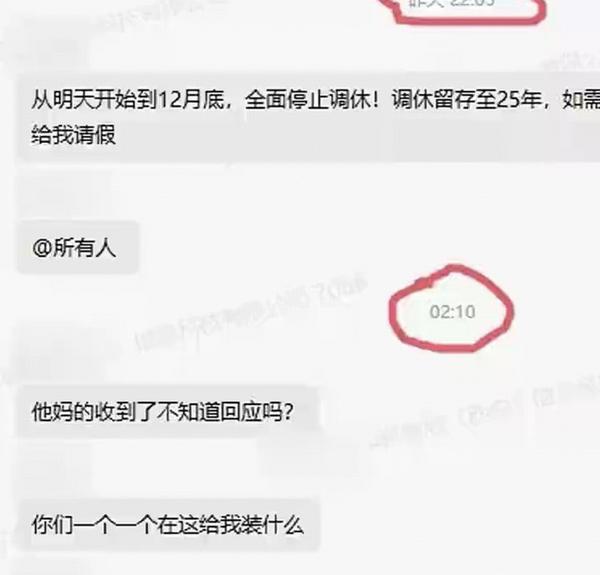Leadership Crisis: Chinese Tech Executive's Late-Night Outburst
A Chinese tech company executive faced backlash after berating employees in a WeChat group at night when they didn’t respond to his message canceling their time off, raising questions about leadership and work-life boundaries.

The incident at a Chinese technology company in Xi’an has sparked widespread discussion about workplace culture and leadership practices in China’s corporate environment. When employees failed to respond to a late-night WeChat message from their company executive canceling scheduled time off, the leader unleashed a series of aggressive messages, including profanity and threats.
The executive’s behavior reflects deeper issues within China’s evolving corporate landscape. While traditional management styles often emphasized absolute authority, modern workplaces require more nuanced leadership approaches that respect work-life boundaries and employee dignity.
This case particularly highlights the clash between traditional authoritarian management and contemporary workplace expectations. The company executive sent the message at 10:05 PM and became angry when no one had responded by 10:10 PM. His subsequent outburst revealed not just poor emotional control but also a fundamental misunderstanding of modern workplace dynamics.
The incident also demonstrates the changing power dynamics in Chinese workplaces. Today’s employees, particularly younger generations, are more aware of their rights and less tolerant of autocratic management styles. The collective silence from employees - with not a single person responding to the executive’s message - speaks volumes about the deteriorating relationship between leadership and staff.
Modern management theory emphasizes that effective leadership relies on building trust and respect rather than fear and intimidation. The executive’s later admission that his behavior reflected “poor quality” as a leader shows some self-awareness but fails to address the fundamental problems with his management approach.
Japanese companies, for instance, have long established clear boundaries between work and personal time, rarely contacting employees outside office hours except in genuine emergencies. This respect for personal time helps maintain healthy workplace relationships and actually improves productivity and loyalty.
The situation serves as a valuable lesson for business leaders in China and globally. Effective leadership in today’s workplace requires emotional intelligence, respect for boundaries, and an understanding that authority must be earned through competence and character rather than imposed through force or intimidation.
Forward-thinking companies increasingly recognize that respecting employees' personal time and maintaining professional communication standards are essential for building successful, sustainable organizations. This incident demonstrates how failing to adapt to these modern workplace expectations can damage team morale and corporate culture.
For Chinese businesses to thrive in the global marketplace, leadership practices must evolve beyond traditional authoritarian models to embrace more collaborative, respectful approaches that recognize the dignity and rights of all employees.